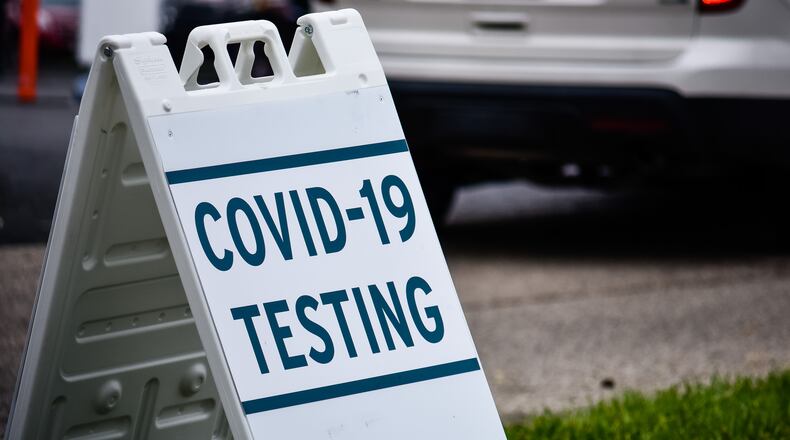The coronavirus testing available to anyone, said McKinley United Methodist Pastor Peter Matthews.
“We wanted to get testing on the west side, given the disparities in testing for people of color,” Matthews said. “We wanted to make every option available.”
The testing will be done by Primary Health Solutions, a non-profit federally qualified health care center. Stephen Roller, the chief operating officer and chief clinical officer of Primary Health Solutions, said the coronavirus testing at McKinley United Methodist Church will be the first of many testings in Dayton. Future testing locations and dates will be determined later, but could include testings at McKinley United Methodist Church again, at other churches on the west side of Dayton or at the Primary Health Solutions office at 300 Forest Avenue, near the Grandview Medical Center.
Roller said he and his team can test between 60 and 80 people in four hours.
The nasal swab test is then sent off to a lab. Roller said it takes between 48 and 72 hours to get results.
Roller said patients should call (937) 535-5060 to do a virtual visit and get the necessary doctor’s order before they get tested for coronavirus. If someone comes to the drive-thru testing and hasn’t gotten a doctor’s order, they can do that on-site on Monday, he said.
Patients should bring a photo ID and an insurance card. Roller said everyone who comes will be tested, even if they are uninsured.
“We’re going to see patients irregardless of their ability to pay,” Roller said.
MORE: Montgomery County cuts $11M, will distribute $92M in stimulus
Roller said it was important to Primary Health Solutions to do testing in the west side of Dayton because the black and Latino communities have been disproportionately affected by the coronavirus.
“This has brought to the forefront the disparities in our communities,” Matthews said. “It’s my moral obligation as a pastor in the community to make sure people in our community are safe because if we don’t take care of ourselves it doesn’t appear anyone else will.”
Matthews said the faith community has had to adapt in these trying times.
“The church must re-imagine itself in these unprecedented times to know that who we are and what we’re about is bigger than a building,” Matthews said. “The arms and legs of Christ are immediately available to people with their backs against the wall. What these discrepancies have shown is it is primarily persons of color who have found themselves historically at the short end of the stick. This provides us an opportunity to be bigger than a building.”
About the Author

